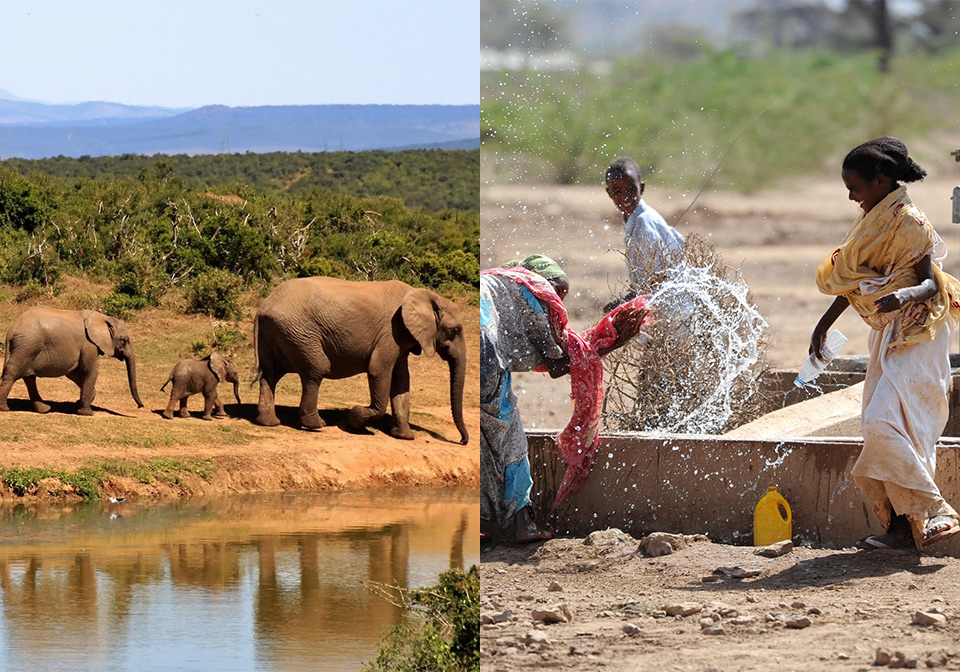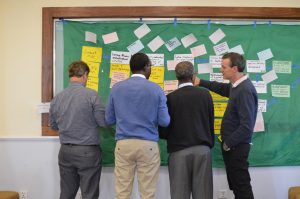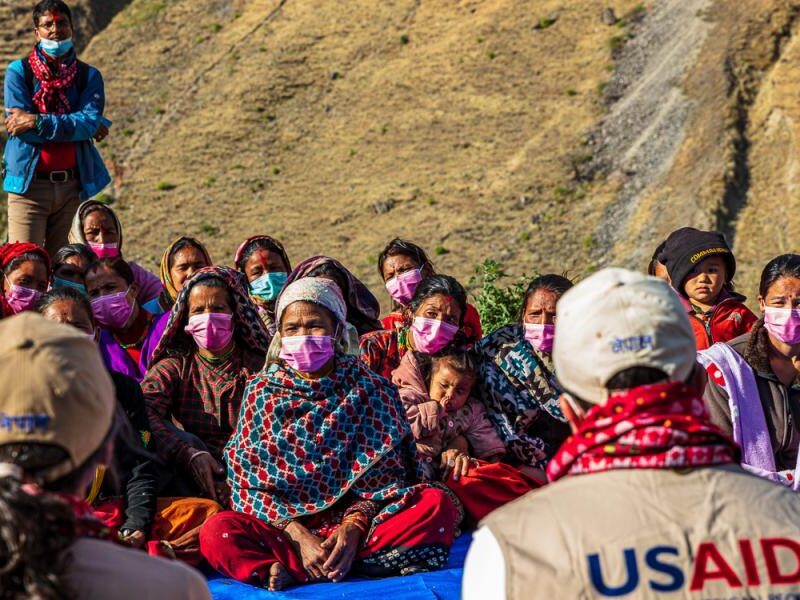More than you might think. The conservation and Water, Sanitation and Hygiene (WASH) sectors both face their share of challenges when it comes to sustainability.
As the learning partner on the United States Agency for International Development (USAID)-funded Sustainable WASH Systems Initiative (SWS), Environmental Incentives is bringing our experience in the conservation sector here in the United States and abroad to the international WASH sector. This five-year initiative is focused on applying, researching, and learning about systems thinking approaches to improve the sustainability of WASH services.
Systems thinking – the understanding that the whole is more than the sum of its parts – may be the key to improved performance in both the conservation and WASH sectors. Both operate in complex contexts that are characterized by a high degree of uncertainty, with numerous interconnected factors at play. In such situations, success hinges on considering all of these factors (whether ecological, social, economic, political, or institutional), how they influence one another, and how they might impact—or be impacted by—the outcome of an intervention.
Consider this example: the Rural Water Supply Network estimates that failed hand pumps on water wells in Africa represent a total lost investment of between $1.2 and $1.5 billion over the past 20 years, with 30 to 40 percent of rural water systems failing prematurely. Similarly, large investments have been made in conservation enterprises—commercial ventures such as beekeeping and ecotourism, intended to reduce threats to biodiversity (like elephant populations) by providing benefits to participants—but in some cases, behaviors that threaten biodiversity continue.
Simply providing access to hand pumps does not necessarily result in a lasting water supply for a community. To keep water flowing, WASH practitioners must also ensure that plumbers and mechanics are available to maintain and fix the water supply system, that communities have a system for financing repairs, and that laws are enforced to prevent people or companies from polluting or depleting aquifers.
Likewise, in conservation, simply investing in ecotourism does not always lead to an increase in elephant populations in a given area. For conservation enterprises to be successful in protection of species, they must focus on more than solely creating income for enterprise participants. Enterprise approaches must also consider whether the new livelihood is a replacement for or a complement to the environmentally destructive practice, or whether other people will move in to exploit that resource when other people move out.
Complexity poses a challenge for both the international conservation and WASH sectors, and Environmental Incentives is using a common set of processes and tools from systems approaches to help us address it. As the first year of implementation on SWS comes to a close, here are three lessons we’ve learned from bridging the two sectors:
When faced with uncertainty, practitioners from both sectors must be able to adapt to new and changing circumstances.
This requires a deep and persistent commitment to learning, and the flexibility to apply new knowledge to implementation decisions. Through iterative planning and regularly collecting and analyzing information about a project’s activities, teams can make real-time adjustments that reflect changes in context and lessons learned.
Members of USAID’s SWS consortium from Tetra Tech and IRC develop a theory of change in Ethiopia.
A good theory of change that can be tested and regularly revisited is central to guiding adaptation with any project.
This should serve as a jumping off point for the project’s monitoring and learning efforts—allowing teams to focus their data collection around validating or invalidating key results in the theory of change, and to develop a learning agenda that responds to and addresses knowledge gaps in the theory of change. Teams can then make real-time adjustments in implementation based on new information and learning.
It’s critical to build in systematic opportunities for reflection, allowing project teams to analyze and process what has been learned through implementation.
This can be done annually through a structured debriefing process or as part of regular reporting and analysis—the key is to provide space for peer sharing and collaboration. Discussions center around what has been learned, what is going well, and what challenges are associated with implementation, as well as stocktaking of new evidence and changing contexts.
Acknowledging that the systems we work in are complex allows us to learn from other sectors and disciplines facing similar challenges. As we have learned from our experience working with a consortium of organizations on SWS (University of Colorado Boulder, IRC, Tetra Tech, LINC, WaterSHED, Whave, and Oxford University), there is value in having multiple perspectives on one project. Borrowing processes and tools from other sectors only broadens our range of options for tackling complexity.
Systems thinking is more than a collection of tools and methods; it is a belief that we are better off working together, that we cannot solve today’s development challenges by limiting ourselves to the knowledge of a single sector…and that elephants and hand pumps are indeed connected.
SWS will be represented at World Water Week, which started yesterday in Sweden (Aug 27-Sep 1).
Written by Brittany Ajroud and Shawn Peabody, who lead Environmental Incentives’ work as the Learning Partner on the Sustainable WASH Systems Initiative.




